November 23 stands as one of history’s most eventful days, witnessing the rise and fall of empires, groundbreaking discoveries, and moments that shaped our modern world across centuries of human achievement.
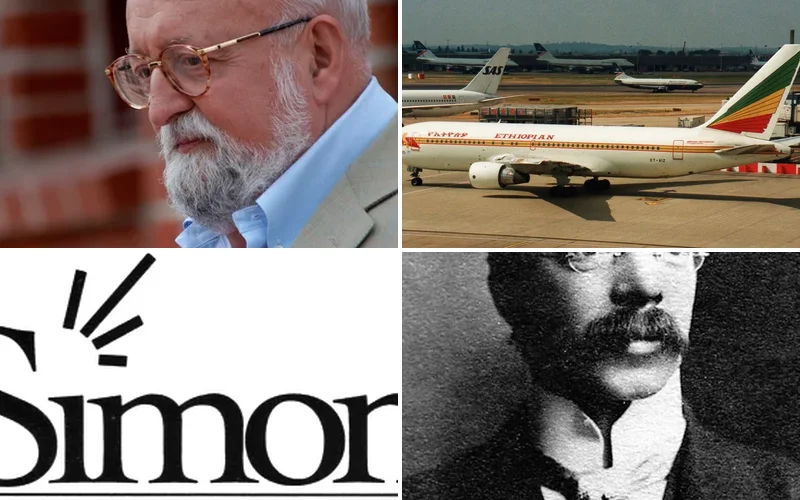
Politics and Government Events on November 23
1921 – Warren G. Harding Signs Willis-Campbell Act
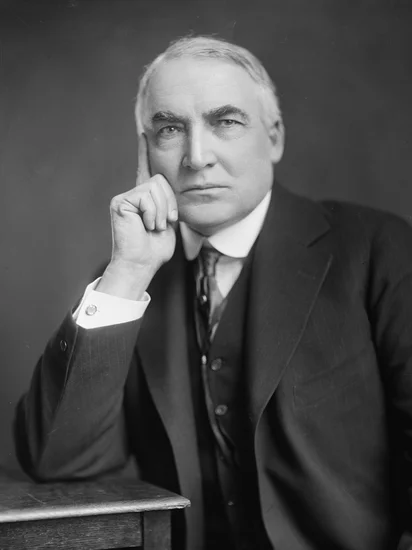
President Warren G. Harding signed the Willis-Campbell Act into law, prohibiting doctors from prescribing beer or liquor for medicinal purposes. This legislation strengthened Prohibition enforcement by closing a major loophole in the Volstead Act.
Medical professionals had been exploiting the medicinal alcohol exemption to circumvent Prohibition laws. The new restrictions eliminated this practice and reinforced America’s commitment to temperance during the 1920s.
1959 – Charles de Gaulle Declares Vision for Europe
French President Charles de Gaulle delivered a historic speech in Strasbourg outlining his vision for “Europe, from the Atlantic to the Urals.” His ambitious proposal envisioned a unified continent extending far beyond Western Europe.
De Gaulle’s continental vision challenged existing Cold War divisions and proposed French leadership in European integration. His words would influence European political discourse for decades to come.
1971 – China Joins United Nations
Representatives of the People’s Republic of China attended the United Nations for the first time, including participation in the Security Council. This marked the end of Taiwan’s representation of China in the international body.
The seating of Communist China fundamentally altered global diplomatic relations during the Cold War era. Beijing’s UN membership legitimized the People’s Republic and shifted the balance of international power.
2003 – Georgian Rose Revolution Culminates

Georgian President Eduard Shevardnadze resigned following weeks of mass protests over flawed elections in the Rose Revolution. Opposition leaders successfully challenged the corrupt electoral process through peaceful demonstrations.
The Rose Revolution became a model for democratic movements across the former Soviet sphere. Georgia’s peaceful transition inspired similar color revolutions throughout Eastern Europe and Central Asia.
2011 – Yemeni President Agrees to Transfer Power

After 11 months of Arab Spring protests, Yemeni President Ali Abdullah Saleh signed an agreement to transfer power to his vice president. The deal granted Saleh legal immunity in exchange for stepping down from office.
This power transfer marked a crucial moment in the Arab Spring movement sweeping across the Middle East. Yemen’s transition attempt represented both the promise and complexity of regional democratic movements.
Military and Naval History on November 23
1914 – U.S. Forces Withdraw from Veracruz
The last American military forces withdrew from Veracruz, Mexico, ending a seven-month occupation that began during the Mexican Revolution. The intervention had been launched in response to the Tampico Affair diplomatic crisis.
The withdrawal marked the end of direct U.S. military intervention in the Mexican Revolution. American forces had occupied the port city to pressure the Mexican government and protect U.S. interests during the civil war.
1939 – HMS Rawalpindi Sunk by German Battleships
World War II witnessed the sinking of HMS Rawalpindi by German battleships Scharnhorst and Gneisenau in the North Atlantic. The converted merchant cruiser fought bravely against overwhelming odds before being destroyed.
The engagement demonstrated the vulnerability of converted civilian vessels against purpose-built warships. Rawalpindi’s sacrifice became a symbol of British naval courage during the early months of World War II.
1943 – American Forces Capture Tarawa and Makin
American forces successfully captured the heavily fortified Tarawa and Makin atolls in the Gilbert Islands during World War II. The bloody Pacific campaign marked a crucial step in the U.S. island-hopping strategy toward Japan.
The Battle of Tarawa became one of the bloodiest Pacific engagements, with fierce Japanese resistance. American victory demonstrated the effectiveness of amphibious warfare tactics that would be refined for future operations.
1981 – Reagan Authorizes Contra Support

President Ronald Reagan signed the top-secret National Security Decision Directive 17, authorizing the CIA to recruit and support Contra rebels in Nicaragua. This covert operation would later become the center of the Iran-Contra scandal.
The directive marked the beginning of sustained American involvement in Central American conflicts during the 1980s. Reagan’s decision reflected Cold War concerns about Soviet influence in the Western Hemisphere.
2010 – North Korea Shells Yeonpyeong Island
North Korean artillery attacked South Korea’s Yeonpyeong Island, killing two civilians and two marines in the most serious border incident in decades. The bombardment raised tensions on the Korean Peninsula to crisis levels.
South Korea responded with counter-battery fire while international leaders condemned the unprovoked attack. The incident highlighted the persistent volatility of the Korean armistice and regional security concerns.
Science and Discovery Milestones on November 23
1924 – Hubble Discovers Andromeda Galaxy
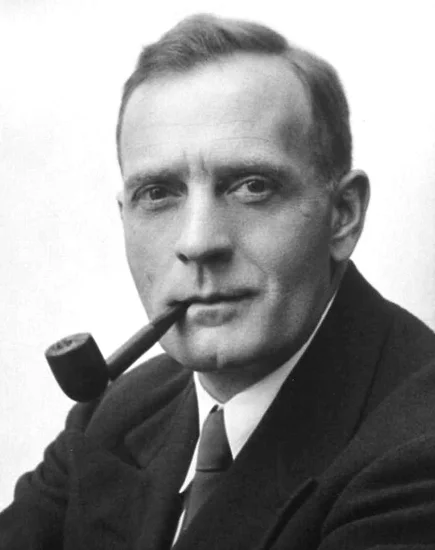
Edwin Hubble’s groundbreaking discovery that the Andromeda “nebula” was actually a separate galaxy far outside our Milky Way was first published in The New York Times. This revelation revolutionized our understanding of the universe’s scale and structure.
Hubble’s observations using the Mount Wilson Observatory telescope proved that countless galaxies existed beyond our own. His discovery fundamentally transformed astronomy and established the field of extragalactic astronomy.
1972 – Soviet Union’s Final N1 Rocket Launch

The Soviet Union made its final attempt at launching the massive N1 rocket, designed to carry cosmonauts to the Moon. The unsuccessful launch effectively ended the Soviet lunar program and marked the conclusion of the Space Race.
The N1 rocket failures represented a major setback for Soviet space ambitions and technological prestige. Four launch attempts had all ended in failure, forcing the USSR to abandon its lunar landing goals.
1992 – IBM Simon Smartphone Introduced

The IBM Simon, recognized as the world’s first smartphone, was introduced at COMDEX in Las Vegas, Nevada. This revolutionary device combined telephone functionality with computer applications and a touchscreen interface.
The Simon featured email, calendar, and note-taking capabilities that would become standard in mobile devices. Its introduction marked the beginning of the smartphone revolution that would transform global communications.
2002 – Space Shuttle Endeavour Launches to ISS

Space Shuttle Endeavour launched on mission STS-113 to the International Space Station, carrying the Expedition 6 crew and the P1 truss segment. The mission continued the ongoing construction of humanity’s orbital laboratory.
The successful mission demonstrated continued international cooperation in space exploration during the early 21st century. Endeavour’s cargo delivery advanced the ISS toward its planned completion and full operational capability.
Cultural and Arts Events on November 23
1963 – Doctor Who Premieres on BBC

The first episode of Doctor Who, titled “An Unearthly Child,” premiered on BBC Television, launching what would become the world’s longest-running science fiction drama series. The show introduced audiences to the mysterious Time Lord and his time-traveling adventures.
Doctor Who revolutionized television science fiction with its innovative storytelling and imaginative concepts. The series became a cultural phenomenon that influenced generations of writers, actors, and fans worldwide.
1943 – Berlin Opera House Destroyed
Allied bombing during World War II destroyed the Deutsche Opernhaus on Bismarckstraße in Berlin’s Charlottenburg neighborhood. The cultural landmark would eventually be rebuilt in 1961 as the Deutsche Oper Berlin.
The destruction represented the devastating impact of war on European cultural institutions. The opera house’s eventual reconstruction symbolized post-war Germany’s commitment to rebuilding its artistic heritage.
1991 – Freddie Mercury Announces HIV Status

Queen’s legendary lead singer Freddie Mercury publicly announced his HIV-positive status in a statement that shocked the music world. He died the following day, marking the end of an era in rock music.
Mercury’s announcement brought unprecedented attention to the AIDS crisis and its impact on the entertainment industry. His death galvanized public awareness and support for HIV/AIDS research and treatment.
2018 – Dolce & Gabbana Apologizes for Offensive Ads
Fashion brand founders Dolce & Gabbana issued a public apology following controversial advertisements on social media that caused outrage in China. The Shanghai fashion show was canceled as a result of the cultural insensitivity.
The incident highlighted the importance of cultural awareness in global marketing and brand management. The controversy demonstrated how social media can rapidly amplify cultural misunderstandings and damage international business relationships.
Religious and Social Events on November 23
1923 – Irish Hunger Strike Ends
The 1923 Irish hunger strikes concluded after four Irish Republicans died from starvation during their protest against government policies. The tragic deaths highlighted the ongoing tensions following the Irish Civil War.
The hunger strikes represented the continued resistance to the Irish Free State government by republican dissidents. The deaths became part of the broader narrative of Irish republican martyrdom and political resistance.
1974 – Ethiopian Political Executions
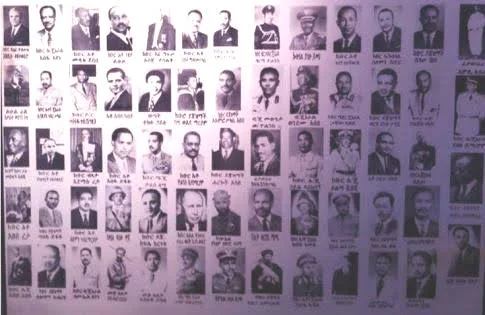
The provisional military government of Ethiopia executed sixty politicians, aristocrats, military officers, and other prominent figures in a massive purge. The executions marked the consolidation of power by the revolutionary regime.
These killings represented the violent transformation of Ethiopian society following the overthrow of Emperor Haile Selassie. The executions eliminated potential opposition to the new military government’s radical reforms.
2004 – Tbilisi Cathedral Consecrated

The Holy Trinity Cathedral of Tbilisi, Georgia’s largest religious building, was consecrated in a ceremony celebrating the revival of Orthodox Christianity in the post-Soviet era. The massive structure symbolized Georgia’s renewed religious identity.
The cathedral’s completion represented the restoration of Georgian Orthodox traditions after decades of Soviet suppression. The consecration marked a significant moment in Georgia’s post-independence cultural and spiritual renaissance.
Business and Economic Events on November 23
1978 – European Broadcasting Frequencies Realigned
The Geneva Frequency Plan of 1975 took effect, realigning many of Europe’s longwave and mediumwave broadcasting frequencies to reduce interference. The comprehensive reorganization improved radio reception across the continent.
The frequency plan represented unprecedented international cooperation in telecommunications management. The coordinated approach demonstrated how European nations could work together to solve technical challenges affecting millions of listeners.
1985 – EgyptAir Flight 648 Hijacking
Gunmen hijacked EgyptAir Flight 648 en route from Athens to Cairo, forcing the aircraft to land in Malta. Egyptian commandos stormed the plane, but sixty people died in the raid.
The tragic incident highlighted the ongoing threat of international terrorism to commercial aviation. The failed rescue attempt demonstrated the extreme dangers faced by both hostages and security forces during hijacking situations.
1996 – Ethiopian Airlines Flight 961 Crashes

Ethiopian Airlines Flight 961 was hijacked and subsequently crashed into the Indian Ocean off the Comoros after running out of fuel. The tragedy killed 125 people in one of the most dramatic hijacking incidents of the 1990s.
The crash was captured on video by tourists, making it one of the most documented aviation disasters in history. The incident led to improved security measures and hijacking response protocols worldwide.
Transportation and Infrastructure on November 23
1955 – Cocos Islands Transferred to Australia
The Cocos Islands were officially transferred from British to Australian control, expanding Australia’s territorial jurisdiction in the Indian Ocean. The transfer completed the process of Australian acquisition of strategic island territories.
The peaceful transition demonstrated the evolution of British colonial administration in the post-war era. Australia’s acquisition of the islands enhanced its strategic position in the Indian Ocean region.
2007 – MS Explorer Sinks in Antarctica
The cruise liner MS Explorer, carrying 154 passengers and crew, sank in the Antarctic Ocean after hitting an iceberg near the South Shetland Islands. All personnel were successfully rescued without fatalities.
The incident marked the first major cruise ship sinking in Antarctic waters and highlighted the risks of polar tourism. The successful rescue operation demonstrated the effectiveness of international maritime safety protocols.
2015 – Blue Origin Achieves Rocket Landing
Blue Origin’s New Shepard space vehicle became the first rocket to successfully fly to space and return to Earth for a controlled vertical landing. This achievement marked a breakthrough in reusable rocket technology.
The successful landing represented a major milestone in reducing space launch costs and increasing access to space. Blue Origin’s achievement preceded similar successes by other private space companies.
Sports and Recreation on November 23
1978 – Jacques Mayol Sets Free Diving Record

French diver Jacques Mayol became the first person to reach a depth of 100 meters (330 feet) underwater without breathing equipment. His achievement pushed the boundaries of human underwater endurance and inspired the sport of free diving.
Mayol’s record demonstrated the extraordinary capabilities of trained free divers and advanced breathing techniques. His achievement became legendary in the diving community and influenced popular culture representations of underwater exploration.
1978 – Cyclone Devastates Sri Lanka

A powerful cyclone struck eastern Sri Lanka, killing approximately 1,000 people and causing widespread destruction. The natural disaster highlighted the vulnerability of coastal communities to extreme weather events.
The cyclone’s impact demonstrated the need for improved disaster preparedness and early warning systems in the region. International aid efforts helped with recovery operations and infrastructure rebuilding.
1980 – Irpinia Earthquake Strikes Italy
A devastating 6.9 magnitude earthquake struck southern Italy with extreme intensity, killing between 2,483 and 4,900 people while injuring thousands more. The disaster caused widespread destruction across the Irpinia region.
The earthquake exposed weaknesses in building construction and emergency response systems in southern Italy. The tragedy led to improved seismic building codes and disaster preparedness measures throughout the country.
Notable Births on November 23
1907 – Run Run Shaw Born
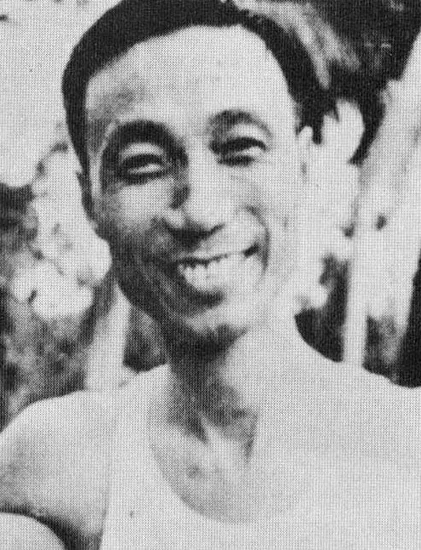
Chinese-Hong Kong businessman Run Run Shaw was born, who would later found Shaw Brothers Studio and TVB, transforming Asian entertainment. His media empire shaped Hong Kong cinema and television for decades.
Shaw revolutionized film production in Asia through innovative studio systems and distribution networks. His contributions to entertainment created lasting cultural impact across Chinese-speaking communities worldwide.
1920 – Paul Celan Born
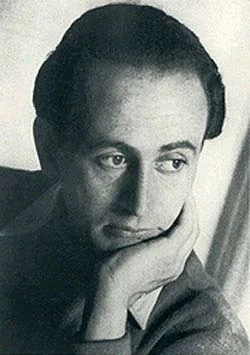
Romanian-French poet Paul Celan was born, becoming one of the most significant Holocaust survivors to document the experience through poetry. His work profoundly influenced modern European literature and Holocaust remembrance.
Celan’s haunting verses captured the horror and loss of the Holocaust while exploring themes of memory and survival. His poetry became essential reading for understanding 20th-century European trauma and recovery.
1933 – Krzysztof Penderecki Born

Polish composer Krzysztof Penderecki was born, who would become one of the most influential avant-garde composers of the 20th century. His innovative techniques transformed contemporary classical music composition.
Penderecki’s experimental approaches to sound and texture created entirely new musical languages. His compositions influenced film scores, concert halls, and musical education worldwide.
1941 – Franco Nero Born

Italian actor Franco Nero was born, who would become an international film star known for his roles in spaghetti westerns and dramatic films. His career spanned multiple decades and genres.
Nero’s performances in European cinema established him as a major international star. His work helped bridge Italian and international film industries during the 1960s and 1970s.
1992 – Miley Cyrus Born

American singer-songwriter and actress Miley Cyrus was born, who would become a global pop culture phenomenon. Her career evolved from Disney Channel star to controversial pop artist and cultural icon.
Cyrus’s artistic evolution reflected changing youth culture and entertainment industry dynamics. Her influence extended beyond music to fashion, social media, and celebrity culture.
Notable Deaths on November 23
1910 – Hawley Harvey Crippen Dies

American physician and convicted murderer Hawley Harvey Crippen was executed, ending one of the most sensational criminal cases of the early 20th century. His case became famous for the first use of wireless telegraphy in criminal apprehension.
Crippen’s arrest through wireless communication marked a turning point in international law enforcement. His case demonstrated how modern technology could aid criminal investigation and capture.
1937 – Jagadish Chandra Bose Dies

Indian physicist, biologist, botanist, and archaeologist Jagadish Chandra Bose died, leaving behind groundbreaking contributions to multiple scientific fields. His research in plant physiology and wireless communication preceded many modern discoveries.
Bose’s interdisciplinary approach to science influenced both Indian and international scientific communities. His work laid foundations for modern biophysics and wireless technology development.
1990 – Roald Dahl Dies
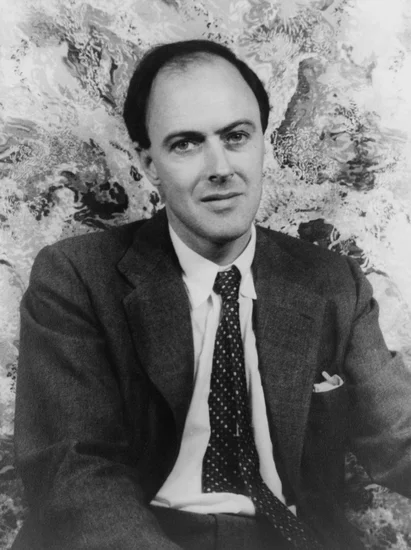
British novelist, poet, and screenwriter Roald Dahl passed away, ending a career that delighted children and adults worldwide. His imaginative stories became classics of children’s literature and popular culture.
Dahl’s unique storytelling style combined darkness with whimsy, creating unforgettable characters and situations. His works continue to inspire new generations of readers and adaptations across multiple media.
2006 – Alexander Litvinenko Dies

Russian spy and defector Alexander Litvinenko died from poisoning in London, creating an international diplomatic crisis. His death highlighted the dangers faced by intelligence operatives and government critics.
Litvinenko’s assassination raised serious questions about Russian state involvement in international murders. His case became a symbol of the risks faced by those who oppose authoritarian regimes.
2012 – Larry Hagman Dies
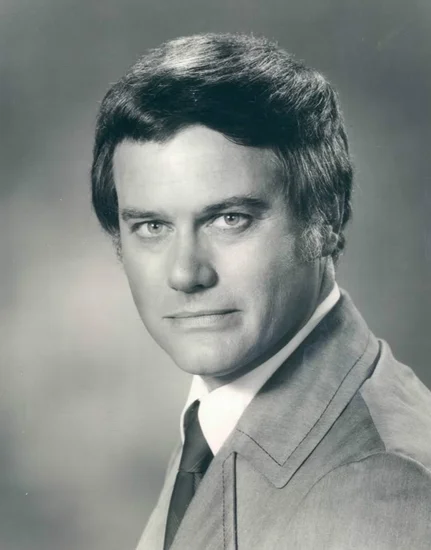
American actor Larry Hagman died, ending a career best known for his role as J.R. Ewing on the television series “Dallas.” His portrayal of the scheming oil baron became an iconic character in television history.
Hagman’s performance helped establish “Dallas” as a global television phenomenon during the 1980s. His character became synonymous with American capitalism and excess in popular culture.
Holidays and Observances on November 23
Labor Thanksgiving Day in Japan
Japan celebrates Labor Thanksgiving Day, a national holiday honoring workers and expressing gratitude for labor and production. The modern holiday evolved from ancient harvest festivals celebrating the fruits of collective work.
The observance reflects Japanese cultural values emphasizing hard work and community contribution. Schools and workplaces hold special ceremonies recognizing the dignity of labor and worker contributions.
St. George’s Day in Georgia

Georgia observes St. George’s Day, known locally as Giorgoba, celebrating the patron saint of the country. The religious holiday holds special significance for Georgian Orthodox Christians and national identity.
The celebration combines religious observance with cultural traditions that reinforce Georgian heritage. Churches hold special services while communities gather for traditional feasts and cultural activities.
Rudolf Maister Day in Slovenia
Slovenia commemorates Rudolf Maister Day, honoring the general who secured northern Slovenian territories for the new Yugoslav state after World War I. The observance celebrates Slovenian national independence and territorial integrity.
Maister’s actions helped establish Slovenia’s current borders and prevented Austrian annexation of Slovenian-speaking regions. The holiday reinforces Slovenian national identity and historical memory.
